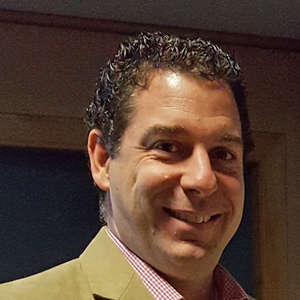Thomas Ducey

Thomas Ducey
Speaker | USDA-ARS
Thomas F. Ducey is a Research Microbiologist with the Agricultural Research Service (US Department of Agriculture), at the Coastal Plain Soil, Water, and Plant Research Center in Florence, SC. He has served in this role for the past 17 years, during which he has led interdisciplinary research on a variety of agricultural issues ranging from antibiotic resistance and animal wastewater treatment, to assessing the impacts of agricultural management practices (cover cropping, tillage, microbial inoculants, compost, and biochar amendments) on soil health and soil microbial community structure and function. His current research has a strong focus on looking at the role of microbial communities in the improvement of soil health and resiliency, and he has worked with several state and federal agencies to develop and assess methods to restore soil health to nutrient impoverished and degraded soils.
Session Code: 4C
Track: CREF Research
Session Name: Compost Additives and Their Effectiveness: Frass and Biochar
Session Time: Thursday, February 8, 8:30 – 10:00 AM
Presentation Title: Use of Microbial Inoculant, Compost & Biochar for Revegetation of Degraded Soils
Presentation Description: Rather than being viewed as simply an inert matrix to hold nutrients and water that promote plant growth, soil should be understood as a living and life-giving natural resource. Over time, this resource can become degraded, not only through natural processes but also through agricultural, industrial, and commercial activities – the results of which may be exacerbated by long-term climatic changes. Degraded soils are characterized by lower soil health, also referred to as soil quality, with a reduced capacity to sustain plant growth and fitness, ecological biodiversity, and environmental quality. This reduced capacity can be measured through a series of biological, chemical, and physical characteristics, which allow land-owners to monitor their soils health, as well as determine if land management practices provide short- and long-term benefits. One of the hallmark characteristics of a degraded soil is its low soil carbon content. While some land management practices (such as adoption of conservation tillage) can improve soil carbon accumulation, such practices can take decades or more to see appreciable gains. However managements such as amendment of degraded soils with compost and/or biochar can result in immediate, significant increases in soil carbon that can then lead to a cascade of improvements in other soil health metrics. In addition, new approaches such as microbial inoculants to directly alter and/or stimulate the soils microbial communities to increase soil carbon inputs, are being introduced. This discussion will touch on the science behind these amendments and how they’re being used to positively impact soil health and improve degraded soils across the United States.

